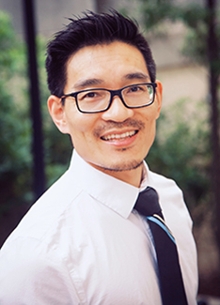
Jinbing Bai, PhD, MSN, RN, FAAN has received the 2019 Emory University Woodruff Scholar Early Independence Award. An annual award of $50,000 is given to supplement the recruitment or retention of an outstanding junior faculty member in the Woodruff Health Science Center’s schools and units. Award winners are viewed as “rising stars” in academia.
Dr. Bai’s research has led to the testing and development of the Parent Caring Response Coding Systems (P-CaReSS) for pain management in cancer-treatment related procedures in children. This coding system he developed has received considerable attention from nurses around the world. Dr. Bai has received numerous awards during his relatively short career including the Young Investigator Award from the American Pain Society and the Jean Guveyan Scholarship awarded by the America Society of Pain Management Nursing. He has also been named in the 2019 class of Fellows to the American Academy of Nursing.
“Dr. Bai is incredibly deserving of this recognition,” said Linda McCauley, PhD, RN, FAAN, dean of Emory's Nell Hodgson Woodruff School of Nursing. “The ability to reward junior faculty of his caliber allows us to truly celebrate the value of nurse scientists and the work they do every day to elevate the science and practice of nursing.”
His pioneering work has contributed fundamental knowledge of the microbiome and is beginning to provide solid evidence for nursing clinical practice. Dr. Bai’s original research provides detailed evidence on how to address cancer treatment toxicities and symptoms. Dr. Bai has been well funded by various mechanisms, including a National Institutes of Health (NIH) Pathway to Independence Award (K99/R00). Through this work, he is helping reveal the biological mechanism of children’s suffering from pain, fatigue, anxiety, depression and cognitive dysfunction across cancer therapies.
Dr. Bai has also tested bioinformatics tools for microbiome big data computations and analyses with his Quantitative Insights into Microbial Ecology 2 (QIIME 2). He and his team have built bioinformatics pipelines to analyze the gut microbiome. His recent published work presented the fundamentals of human microbiome data collection and analysis methods to inform nursing science using QIIME 2, which has allowed his work to impact nursing on national and international levels regarding research in pain and symptom management.
